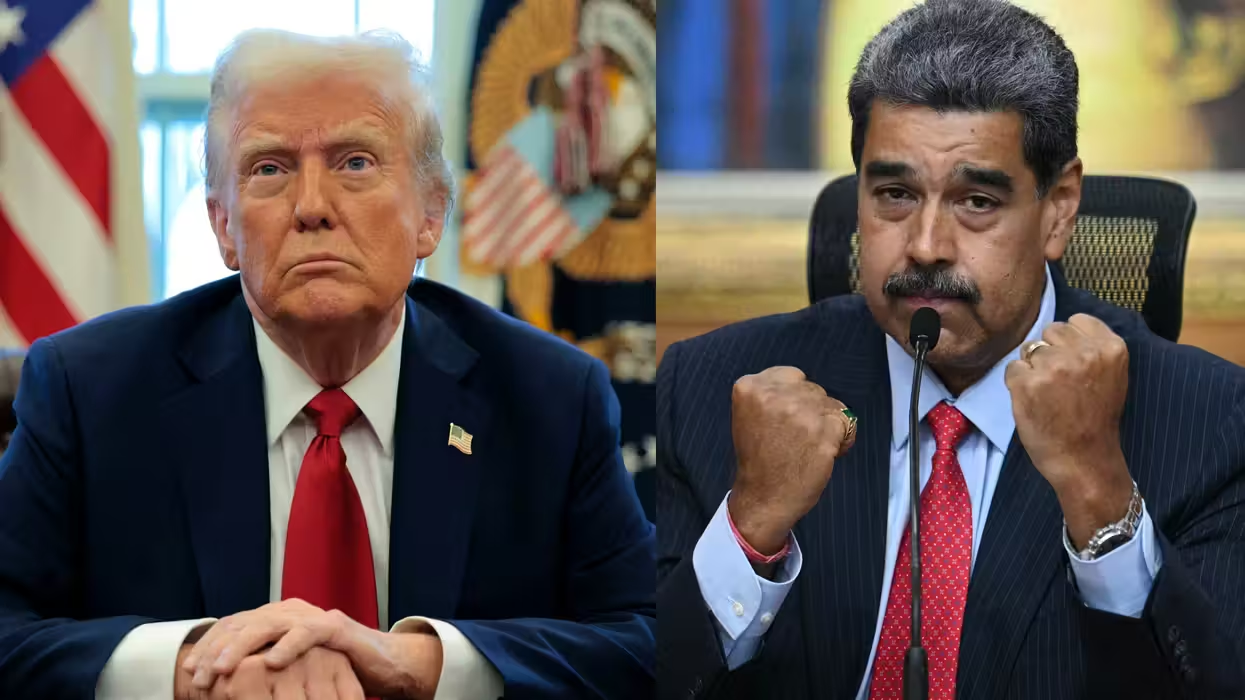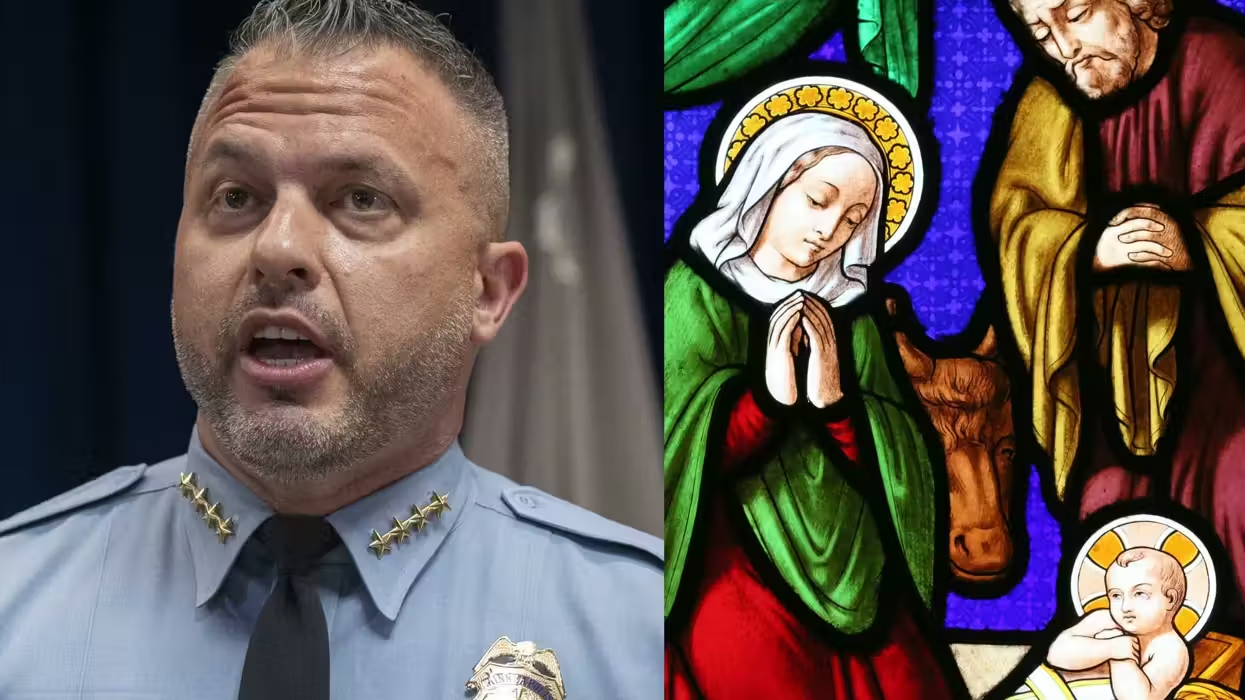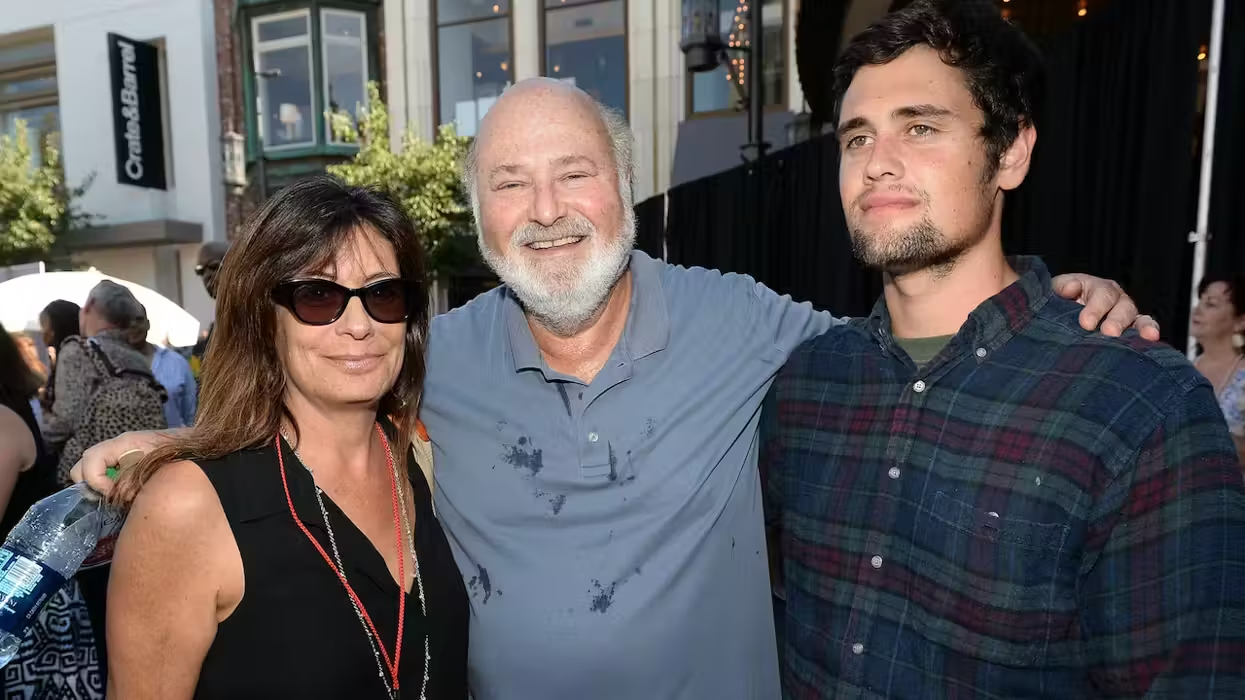
© 2025 Blaze Media LLC. All rights reserved.
Debt, Neo-Nazis, Rising Tensions: European Union Wins the Nobel Peace Prize
October 12, 2012
Previous recipients include Yasser Arafat and Mikhail Gorbachev -- Flashback: Greek Neo-Nazi Party surges in popularity Flashback: German Chancellor Angela Merkel greeted with Nazi salutes & Swastikas Flashback: Madrid overrun by massive protests Flashback: Greek protests turn violent, police unleash teargas, rubber bullets

The European Union won the Nobel Peace Prize despite the Norwegian prize jury's warning Friday that the financial crisis challenging the bloc's unity could lead to a return to "extremism and nationalism."
The award was hailed at the EU headquarters in Brussels and by pro-EU government leaders across Europe, but derided by "euroskeptics" who consider the EU incapable of addressing its most pressing crises.
European unity, as we’re sure you know, is being threatened by a debt crisis that has stirred deep tensions between north and south, caused unemployment to soar, and sent hundreds of thousands of its citizens into the streets to protest tax hikes and job cuts.
The bloc's financial disarray is threatening the euro -- the common currency used by 17 of its members -- and even the structure of the union itself. The debt crisis is also fueling the rise of extremist movements such as Golden Dawn in Greece. The party, which opponents brand as neo-Nazi, has soared in popularity as Greece sinks deeper into a debt-fueled morass.
"We do not have a position on how to solve these problems, but we send a very strong message that we should keep in mind why we got this Europe after World War II," Nobel committee chairman Thorbjoern Jagland told The Associated Press.
"And that we should do everything we can to safeguard it, not let it disintegrate and let the extremism and nationalism grow again, because we know what catastrophes that all this leads to," he said. "If the euro starts falling apart, then I believe that the internal market will also start falling apart. And then obviously we get new nationalism in Europe. ... This is not a good scenario."
German Chancellor Angela Merkel said the Nobel committee had made a "wonderful decision," and linked it to efforts to salvage the euro even though the judges didn't mention the common currency, specifically.
"I often say the euro is more than only a currency. We shouldn't forget this in these weeks and months in which we work for the strengthening of the euro," Merkel told reporters at the Chancellery in Berlin. She said the euro "has always and primarily been about the original idea of Europe as a community of peace and values."

Strong reactions to the choice for the $1.2 million award crackled Friday over social media.
"The EU is an unique project that replaced war with peace, hate with solidarity. Overwhelming emotion for awarding of (hash)Nobel prize to EU," Martin Schulz, president of the European Parliament, wrote in a tweet.
"Nobel prize for the EU. At a time Brussels and all of Europe is collapsing in misery. What next? An Oscar for Van Rompuy?" said Dutch euro-skeptic lawmaker Geert Wilders, referring to Herman Van Rompuy, president of the European Council.
Normally, the prize committee either honors lifetime achievement, like when longtime peace mediator Martti Ahtisaari won in 2008, or promotes a work in progress, such as the 1994 award to Yasser Arafat (yes, that Yasser Arafat), Shimon Peres, and Yitzhak Rabin, which was meant to boost Mideast peace efforts, or President Obama winning the prize despite having accomplished nothing as president.
Oh, also, there was that time they awarded Mikhail Gorbachev (as opposed to President Ronald Reagan or Pope John Paul II) the peace prize "for his leading role in the peace process which today characterizes important parts of the international community.” Oh, yeah, and Al Gore won too. So there’s that.

Anyway, regardless of what you think of the committee’s choices, this year's award is intended to honor lifetime achievement and promote a work in progress.
Jagland told AP it "looks backward as well as forward" by recognizing the EU's historical role in building peace, but it does so at a time when nationalist forces that once tore the continent apart are again on the rise.
Jagland said it was up to the EU to decide who should come to the prize ceremony in Oslo on Dec. 10, the anniversary of prize founder Alfred Nobel's death in 1896.
The EU has been seen as possible candidate for the Nobel for many years, and the members of the committee had previously praised the community's significance as a promoter of peace and democracy in Europe.
Ironically, skepticism against the EU runs high in oil-rich Norway, which is not a member and where popular opinion is firmly against membership. Norwegian voters rejected joining the EU twice, in 1972 and 1994.
Follow Becket Adams (@BecketAdams) on Twitter
The Associated Press contributed to this report. This story has been updated.
Want to leave a tip?
We answer to you. Help keep our content free of advertisers and big tech censorship by leaving a tip today.
Want to join the conversation?
Already a subscriber?
more stories
Sign up for the Blaze newsletter
By signing up, you agree to our Privacy Policy and Terms of Use, and agree to receive content that may sometimes include advertisements. You may opt out at any time.
Related Content
© 2025 Blaze Media LLC. All rights reserved.
Get the stories that matter most delivered directly to your inbox.
By signing up, you agree to our Privacy Policy and Terms of Use, and agree to receive content that may sometimes include advertisements. You may opt out at any time.






